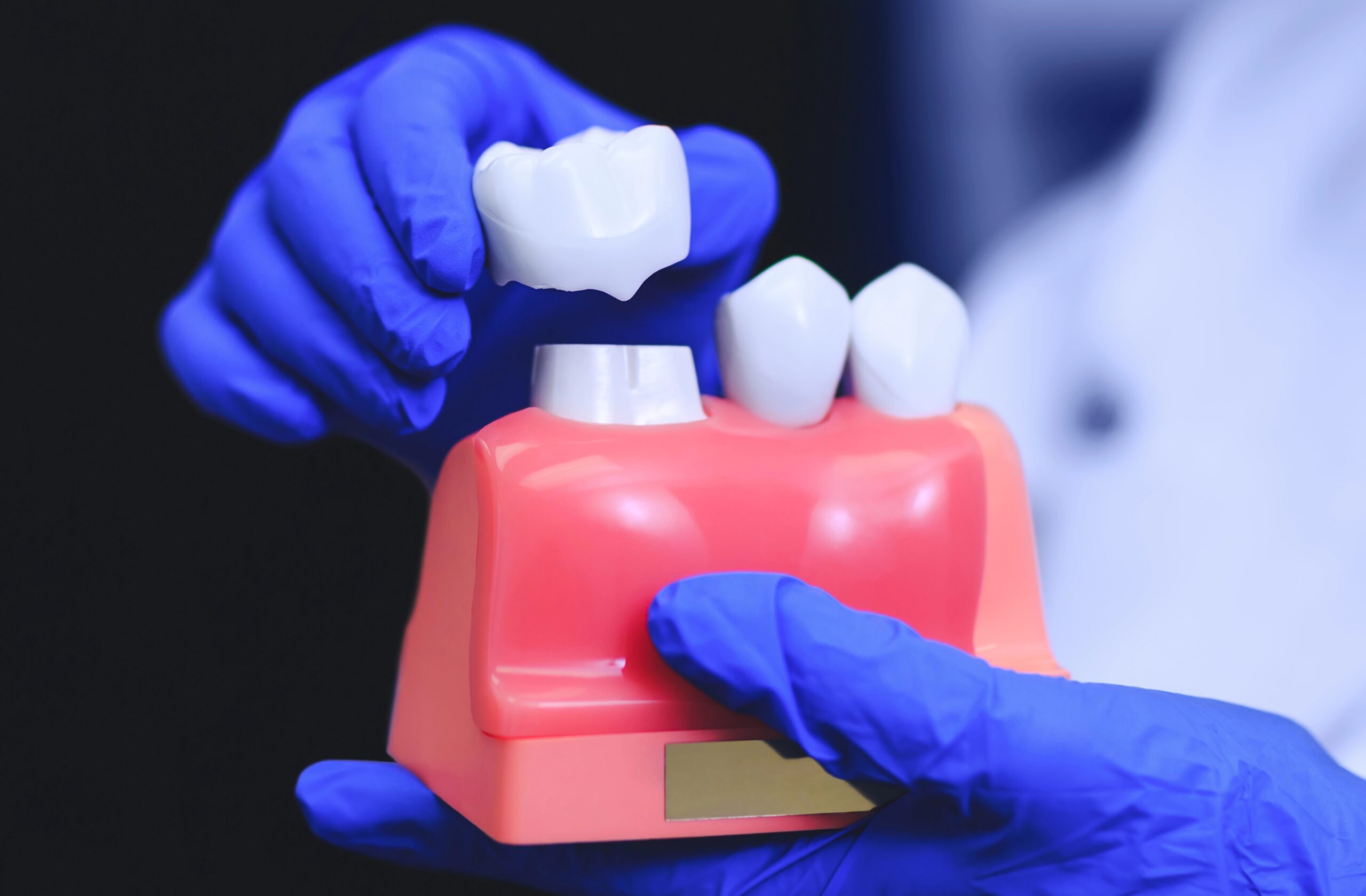
Understanding Dental Implants: A Comprehensive Guide
- Posted on March 19, 2024
When you're facing the dilemma of missing teeth, dental implants offer a modern solution that goes beyond the traditional dentures and bridges. These implants are essentially titanium posts, anchored securely to your jawbone, providing a sturdy foundation for porcelain crowns that mimic your natural teeth.
The beauty of dental implants lies in their ability to restore not just the look but also the function of your teeth. They're a game-changer for many, offering a permanent fix that blends seamlessly with your smile, enhancing both aesthetics and oral health. Whether it's one tooth or several, implants could be the key to regaining your confident smile.
What Kind of Dental Work is Implants?
When you're exploring options to replace missing teeth, dental implants stand out due to their robust design and longevity. Unlike dentures or bridges, dental implants are surgically positioned into the jawbone beneath your gums. Over time, these implants fuse to your jawbone, providing stable support for artificial teeth.
Dental implants consist of three main components:
- The Titanium Post: Acts like the tooth root and is securely anchored to your jawbone.
- The Abutment: Sits above the gum line and connects the titanium post to the crown.
- The Porcelain Crown: Designed to mimic the look and function of a natural tooth.
Here's why dental implants are considered a prime dental restoration method:
- Permanent Solution: They're designed to last a lifetime if cared for properly.
- Natural Look and Feel: They blend seamlessly with existing teeth.
- High Success Rate: Implants have a success rate of up to 98%.
- Prevents Bone Loss: By stimulating the jawbone, they prevent bone deterioration.
In terms of functionality, dental implants allow you to eat your favorite foods without hesitation and speak clearly, which might not always be the case with other options. Also, as they don’t require reducing other teeth, as a bridge does, more of your natural teeth are left intact, which benefits your oral health in the long term.
People with one or several missing teeth on the same side of the mouth might initially consider a bridge. But, if there are multiple missing teeth or if the surrounding teeth aren't strong enough to support a bridge, implants are often the recommended choice. Remember, a healthy jawbone and gums are essential for the successful placement of implants, so it's important to discuss your options with your dentist.
What are Dental Implants?
Definition of Dental Implants
Dental implants are a durable and effective form of dental restoration designed to replace your missing or damaged teeth. Essentially, dental implants act as artificial tooth roots. They are formed from titanium posts that are surgically fitted into your jawbone beneath your gums. Over time, these posts integrate with your natural bone, creating a sturdy foundation to support replacement teeth or crowns.
Unlike dentures or bridges that may slip or cause damage to the bone, dental implants mimic the structure of natural teeth. They consist of the titanium implant that is inserted into the jawbone, an abutment, which sits above the gum line, and the visible part of the restoration – the porcelain crown. Not only do they restore the appearance of your smile, but dental implants also bring back full functionality to your teeth, allowing you to chew and speak with ease.

Types of Dental Implants
There are several types of dental implants to cater to your specific dental needs. Endosteal implants are the most common type, which are directly placed into your jawbone. Once the surrounding tissue has healed, a second surgery is required to connect a post to the original implant. Finally, a crown is attached to the post.
Subperiosteal implants, on the other hand, consist of a metal frame that is fitted onto the jawbone just below the gum tissue. As your gums heal, the frame becomes fixed to your jawbone, and posts that are attached to the frame protrude through the gums. Afterward, artificial teeth are mounted to these posts.
In more complex cases, such as insufficient bone mass or structure, additional procedures like sinus augmentation or ridge modification may be necessary. Sinus augmentation raises the sinus floor to develop bone for the placement of implants, while ridge modification rectifies deformities in the jaw to provide a stable foundation for implants.
Benefits of Dental Implants
Improved Appearance
Dental implants provide a natural look and feel that closely mimics your real teeth. Unlike dentures, which may have the drawback of slipping out of place, implants are permanently anchored to your jawbone. This integration of the titanium post and bone ensures the implant maintains the shape of your face and smile.
- Preserves Bone Structure: Without a tooth root, the jawbone can begin to deteriorate. But, implants stimulate bone growth, similar to natural tooth roots.
- Customized Fit: Each implant is tailored to match the color and contour of your existing teeth, blending seamlessly.

Enhanced Functionality
The functionality of dental implants goes beyond cosmetic appeal; they restore nearly all the chewing power of natural teeth.
- Eat With Ease: You can enjoy your favorite foods without hesitation, as dental implants can withstand the force needed to bite into an apple or chew steak.
- Clear Speech: Implants eliminate the discomfort and embarrassment that ill-fitting dentures might cause when speaking.
- Oral Health Preservation: Individual implants allow easier access between teeth, promoting better oral hygiene and preserving the health of your natural teeth.
Long-Lasting Solution
While bridges and dentures have a limited lifespan and may need frequent replacements or adjustments, dental implants are renowned for their durability and longevity.
- Sustainable Investment: They can last a lifetime with proper care, including regular dental check-ups and good oral hygiene.
- High Success Rate: The vast majority of dental implant procedures are successful, leading to a long-term, beneficial outcome for patients.
- Complication Management: Issues like peri implantitis require attention but can typically be managed effectively, minimizing the risk of implant failure.
Candidates for Dental Implants
When you're considering dental implants, it's crucial to understand whether you're the right candidate for the procedure. Dental implants require a certain set of conditions to be met, primarily concerning the health of your gums and jawbone, the density of your bone, and your overall health status.
Healthy Gums and Jawbone
For dental implants to be successful, your gums must be in good health. This is because healthy gums are essential in supporting the implant structure. Any signs of periodontal disease must be treated before implant placement. Likewise, a healthy jawbone is necessary because it serves as the foundation for the implant. Your dentist will assess the condition of your gums and whether your jawbone has the required strength and volume to anchor the implants securely.
Adequate Bone Density
Adequate bone density is critical for dental implant success. The jawbone must be able to support the implant and withstand the forces of biting and chewing. If your jawbone is too thin or soft, you may require a bone graft or sinus lift to build up the bone before implants can be placed. This process adds to the overall timeline but is vital for long-term stability.
Good Overall Health
Being in good overall health significantly influences the healing process and longevity of dental implants. Conditions that affect healing, such as diabetes, osteoporosis or certain autoimmune diseases, need to be well-managed. If you smoke, you should be aware that it can inhibit healing and reduce the long-term success rate of your implant. Your dental provider will evaluate your general health, including a review of your medical history, to ensure you're an appropriate candidate for dental implants.

Potential Risks and Complications
When considering dental implants, it's crucial to be aware of the associated risks and complications. Even despite the high success rate, certain factors can affect the outcome of implant surgery. Let's explore some of these potential challenges.
Infection
The most common complication during dental implant surgery is infection. Your mouth is home to numerous bacteria, and an implant opening can become a gateway for these microbes to enter the tissue and bone. Key signs to watch for include:
- Swelling, redness, or throbbing pain around the implant site
- Discharge or bad taste emanating from the area
- Elevated temperature indicating possible infection
Nerve Damage
Another risk of dental implant surgery is potential nerve damage, which may result in:
- Pain, numbness, or tingling in your teeth, gums, lips, or chin
- An altered sensation that can affect your daily life
- Issues with speaking or eating if the areas around your lips or tongue are affected
Implant Failure
The success of your dental implant hinges on its ability to integrate with the jawbone, a process known as osseointegration. But, several factors might lead to implant failure, which includes:
- Poor healing capacity, often influenced by medical conditions like diabetes
- Compromised bone quality, affecting the implant's stability
- Lifestyle factors such as smoking that can delay healing
- Mechanical issues like a loose abutment screw, causing the implant to feel wobbly
Are You in Need of Dental Implants?
Embarking on the journey to getting dental implants is a significant decision that can enhance your quality of life. You've learned that they offer a natural look and feel, with the added bonus of preserving your facial structure and preventing bone loss. It's clear that the success of your implants hinges on your commitment to oral hygiene and regular dental visits. Remember, while the process might seem daunting, the end result is a durable and functional smile. If you’re ready to take the next step in bettering your smile, get in touch with the team at Tooth Buds Dentistry.

Dr. Prabhdeep Kaur, a General Dentist, has been enriching the field of dentistry with her expertise for over 13 years, having obtained her license in Canada in 2015. A holder of a BDS degree, Dr. Kaur’s proficiency spans a wide array of dental services, including General and Cosmetic Dentistry, Wisdom Teeth Extractions, Invisalign, and more. Her commitment to her craft is further evidenced by her memberships in prestigious organizations like the Ontario Dental Association, the Academy of General Dentistry, and the Royal College of Dental Surgeons of Ontario.
Renowned for her patient-focused approach, Dr. Kaur emphasizes the importance of listening and customizing treatments to meet individual needs, viewing dentistry not only as a science but also as an art form dedicated to enhancing and restoring smiles. Her dedication to ongoing education ensures she remains at the cutting edge of dental advancements.
Outside her professional life, Dr. Kaur enjoys family time, travel, and cinema, adding a relatable and approachable dimension to her persona. She is passionate about delivering professional and quality dental care, driven by her desire to connect with people and address their dental needs effectively.
Dr. Kaur’s journey in dentistry serves as an inspiration for aspiring dental professionals, advocating determination, motivation, and enjoyment in their work. Follow her journey and professional updates on Instagram @drprabh84, where she continues to inspire both her patients and peers in the dental community.






